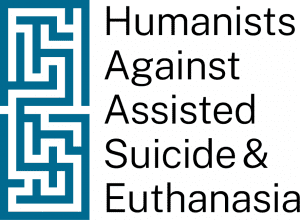Assisted dying? Assisted suicide? Euthanasia? Dignity in dying?
In the UK, ‘assisted dying’ has been the preferred term for the past decade or so. However, we prefer ‘assisted suicide’ and ‘euthanasia’ (ASE) because they are more accurate than ‘assisted dying’.
The change in terminology began in the USA. Whereas 42 states have laws against helping someone die by suicide, the 11 jurisdictions where assisted suicide is legal expressly state that ‘actions taken in accordance with [the Act] shall not, for any purpose, constitute suicide, assisted suicide, mercy killing or homicide, under the law.’ This distinguishes the legal act of ‘medical aid in dying’ from the act of helping someone die by suicide.
But what occurs in the United States – and what is proposed in the UK – is suicide. Where it is legal in the US, the patient takes the last action of ingesting deadly poison with the intent to die. This is also true of Switzerland.
Elsewhere, euthanasia is the rule. Euthanasia is where the doctor gives a lethal injection. It is killing, just as capital punishment by lethal injection is execution, no matter what PR name is given it.
Not surprisingly, most people have no idea what assisted dying is – or isn’t. In a 2021 UK poll commissioned by the Dying Well charity, 52 per cent of respondents thought that assisted dying meant either providing hospice-type care to people who are dying or giving people who are dying the right to stop life-prolonging treatment. Both are currently legal in the UK. A similar poll in New Zealand in 2017 found that 66 percent of respondents thought the term included turning off life support, 51 percent thought stopping all medical treatment was assisted dying, and 59 percent thought DNR requests were Included. 51 percent thought it meant pain treatment. Such results imply that the idea that more than 80 per cent of the public favour legalizing ‘assisted dying’, as we frequently hear, must be taken with a pinch of salt.
Assisted dying is at best branding. We think this discussion should begin with honesty.



 What do the public understand assisted dying to mean? We are raising money to conduct a poll to find out.
What do the public understand assisted dying to mean? We are raising money to conduct a poll to find out.